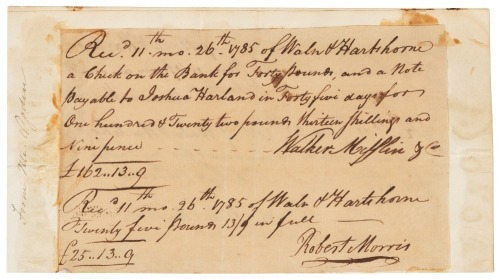Robert Morris Felt 1974 Felt. 260 × 112 x 80 cm (102 2/5 × 44 1/5 x 31 1/2 in). This work is accompanied by a certificate of authenticity signed by the artist.
Provenance Acquired directly from the artist Exhibited Milan, Galleria Allesandra Castelli, Robert Morris 1974 Catalogue Essay Robert Morris as a founding member of the Minimal art movement centred on the Green Gallery, has been a pivotal figure on the New York art scene since the mid-sixties. During the summer of 1967, Morris was invited by collector John Powers to attend the Aspen Institute’s Artists and Scholars in Residence Program. It was while in Aspen that the artist turned his attention to industrial felt and realized his first works in this medium. The first piece he made consisted of felt strips cut by children whom he had invited to work with him. Explaining the choice of felt as a medium, Morris said, “Felt has anatomical associations, it relates to the body – it is skin-like. The way it takes form, with gravity, stress, balance, and the kinesthetic sense, I like all that.” Felt, from 1974, is one of Robert Morris’s exemplary felts, radical and beautiful in its simplicity. A panel of felt is nailed on to the wall, both ends at the same height, letting the material do the rest. The given form derives from the way in which the nails hold the material together, achieving an almost baroque movement of drapery – an indication of the radical nature of Morris’ language. The material plays a key role, its inherent colour and the thickness of the felt allow only the minimal involvement of the artist’s hand. The work takes on a new life andshape each time it is installed, answering to the gravity and the light of the space it occupies. In his famous essay ‘Anti Form’, from 1968, Morris has written about this involvement of the accidental: “Random piling, loose stacking, hanging, give passing form to material … Chance is accepted and indeterminacy is implied since replacing will result in another figuration.” Highly conceptual in its approach, this groundbreaking minimal sculpture is a very much a “specific object” to use the artist Donald Judd’s sculptural term. While a work of great beauty, Felt makes a clear statement in its simplicity and elegance. Often in an understated way, Morris and minimalist art in general opened up the artwork to take in the whole realm of visual culture in the spheres of design, fashion, media and architecture to the extent that they changed the way we now see. Read More
Robert Morris Felt 1974 Felt. 260 × 112 x 80 cm (102 2/5 × 44 1/5 x 31 1/2 in). This work is accompanied by a certificate of authenticity signed by the artist.
Provenance Acquired directly from the artist Exhibited Milan, Galleria Allesandra Castelli, Robert Morris 1974 Catalogue Essay Robert Morris as a founding member of the Minimal art movement centred on the Green Gallery, has been a pivotal figure on the New York art scene since the mid-sixties. During the summer of 1967, Morris was invited by collector John Powers to attend the Aspen Institute’s Artists and Scholars in Residence Program. It was while in Aspen that the artist turned his attention to industrial felt and realized his first works in this medium. The first piece he made consisted of felt strips cut by children whom he had invited to work with him. Explaining the choice of felt as a medium, Morris said, “Felt has anatomical associations, it relates to the body – it is skin-like. The way it takes form, with gravity, stress, balance, and the kinesthetic sense, I like all that.” Felt, from 1974, is one of Robert Morris’s exemplary felts, radical and beautiful in its simplicity. A panel of felt is nailed on to the wall, both ends at the same height, letting the material do the rest. The given form derives from the way in which the nails hold the material together, achieving an almost baroque movement of drapery – an indication of the radical nature of Morris’ language. The material plays a key role, its inherent colour and the thickness of the felt allow only the minimal involvement of the artist’s hand. The work takes on a new life andshape each time it is installed, answering to the gravity and the light of the space it occupies. In his famous essay ‘Anti Form’, from 1968, Morris has written about this involvement of the accidental: “Random piling, loose stacking, hanging, give passing form to material … Chance is accepted and indeterminacy is implied since replacing will result in another figuration.” Highly conceptual in its approach, this groundbreaking minimal sculpture is a very much a “specific object” to use the artist Donald Judd’s sculptural term. While a work of great beauty, Felt makes a clear statement in its simplicity and elegance. Often in an understated way, Morris and minimalist art in general opened up the artwork to take in the whole realm of visual culture in the spheres of design, fashion, media and architecture to the extent that they changed the way we now see. Read More




.jpg)








Try LotSearch and its premium features for 7 days - without any costs!
Be notified automatically about new items in upcoming auctions.
Create an alert